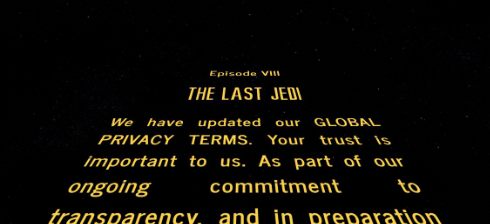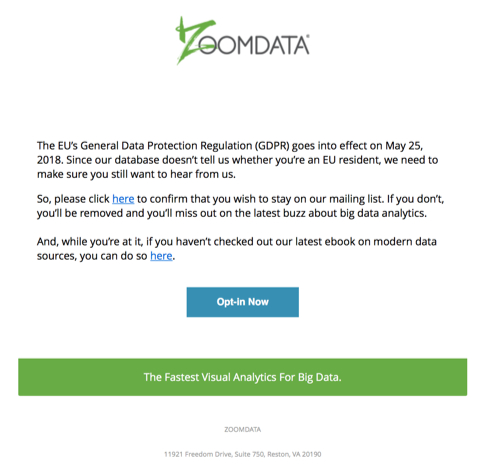#GDPR
Twitter has some opinions on #GDPR.
— @rianjohnson (Yes, the director of The Last Jedi)
Finds deserted island
a message in a bottle washes onto the beach
*opens bottle*
We’ve updated our Privacy Policy
— Marques Brownlee (@MKBHD) May 24, 2018
Happy #GDPR day! #gdprjokes pic.twitter.com/2SVisxIuRY
— Luke Stevens (@lukestevens) May 24, 2018
just got a GDPR email from a company with every single recipient accidentally CCd in. Great start lads
— ben (@b3nfox) May 24, 2018
https://twitter.com/Yeblocs/status/999808093990113286
It is May 24th.
You work in tech.
Roll 10d10 for how many privacy policy updates you'll receive today.— DM of Engineering (@dmofengineering) May 24, 2018
Can't get away from it! #gdpr #email #privacy #bureaucracy pic.twitter.com/mMvCp0d3Mz
— Joe M. Turner (@turnermagic) May 25, 2018
*yelling from the bathroom with the door open* ive updated my privacy policy
— ᴘᴀᴘᴇʀʙᴇᴀᴛssᴄɪssᴏʀs (@paperbeatstweet) May 24, 2018
Anyone else realizing they’ve had the same email address for too long? I just got a #GDPR email from the Cantina events mailing list… pic.twitter.com/lDwLI6MRdR
— Mayhew Foundation 🔜 SW:C (@TheWookieeRoars) May 24, 2018
I had no idea until this week just how many random things on the internet I was subscribed to. Thank you, EU! #GDPR
— Berkubernetus (@fuzzychef) May 24, 2018
*front of card*
To My Wife, On Our Anniversary
*inside*
I'd Like to Tell You About Some Updates to Our Privacy Policy
— Janie (@janie) May 24, 2018
Live from the office of every company just getting serious about GDPR compliance. pic.twitter.com/QmRhrPYbjU
— Jake Williams (@MalwareJake) May 23, 2018
I love receiving privacy policy updates for brands I have no past relationships with, sent to email addresses given to a different company. If there ever was a clue you’re doing it wrong this is it. #GDPRcompliance #CASL
— Matthew Vernhout (@EmailKarma) May 24, 2018
This is to inform you that I've updated my privacy policy.
I'm a pretty private person, generally keep to myself.
— Kevin Murphy (@kwmurphy) May 24, 2018
Hi!
Just letting you know you can't use your lights anymore because we're slathering your data around and GDPR is here.
good luck! bye! pic.twitter.com/3ZI2WkqPAI
— Internet of Shit (@internetofshit) May 24, 2018
https://twitter.com/jseegert/status/999802840422993923
Hey I just met you
and this is crazy
But here's my number
so I, the data subject, has given explicit consent to the processing of this personal data for one or more specified purposes per article 9 section 2A of the General Data Protection Regulation (#GDPR) to call me maybe— John Egan (@jegania) May 24, 2018
My entire inbox is beginning to feel like the ramblings of a desperate ex-boyfriend #GDPR pic.twitter.com/3sFe5B09LC
— Sarah O'Connor (@sarahoconnor_) May 23, 2018
Happy GDPR eve pic.twitter.com/5nnRiczHGV
— TwistedDoodles (@twisteddoodles) May 24, 2018
I can only hope that the companies who say I have to opt-in to continue receiving information from them really leave me alone after tomorrow. #GDPRcompliance
— Laura Atkins (@wise_laura) May 24, 2018
